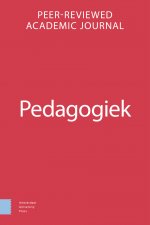
Inclusief basisonderwijs in de KAR: kansen en bedreigingen
Omschrijving
De Koerdische Autonome Regio (KAR) is sinds 2005 een zelfstandige regio in het noorden van Irak, waar voornamelijk Koerden wonen. De KAR heeft een eigen regering en een eigen president, maar is wat wet- en regelgeving betreft onderdeel van Irak. In dit artikel wordt de situatie van inclusief onderwijs in de KAR onder de loep genomen. De aanleiding hiervoor is dat Irak in 2013 de ‘Verklaring van de Verenigde Naties inzake de rechten van personen met een beperking’ heeft geratificeerd. Hiermee heeft de KAR zich uitgesproken voor het bieden van inclusief onderwijs aan alle kinderen, dus ook kinderen met een beperking. Om de situatie van kinderen met een speciale leerbehoefte goed te kunnen begrijpen, wordt eerst een kort historisch overzicht van het Koerdisch onderwijs gepresenteerd. Daarna wordt de huidige staat van het onderwijs besproken om vervolgens in te gaan op de specifieke situatie van het onderwijs aan leerlingen met een speciale leerbehoeften. Er wordt aandacht besteed aan de stappen die reeds zijn gezet en wat er nodig is om deze ambitie waar te kunnen maken. Deze analyse leidt ten slotte tot een overzicht van de sterktes en zwaktes en de kansen en bedreigingen voor de ontwikkeling van inclusief onderwijs in de KAR. Het feit dat de regering van de KAR de wil en de ambitie heeft uitgesproken om een inclusief onderwijssysteem te gaan realiseren in de hele regio is een belangrijke reden om vertrouwen te hebben in de toekomst van inclusief onderwijs in de KAR.
Abstract
The Kurdistan Region of Iraq (KRI) has been an independent region in the north of Iraq since 2005. The majority of the inhabitants of KRI is Kurdish. The KRI has its own government and its own president but is part of Iraq in terms of laws and regulations. This article investigates the situation of inclusive education in the KRI. The reason for this is that Iraq ratified the United Nations Declaration on the Rights of Persons with Disabilities in 2013. With this, the KRI has spoken out in favor of providing inclusive education to all children, including children with disabilities. To properly understand the situation of children with special educational needs, a brief historical overview of Kurdish education is presented first. Subsequently, the current state of education is discussed, followed by the situation of education for children with special educational needs. Attention is paid to the steps that have already been taken and what is needed to realize this ambition. Finally, this analysis leads to an overview of the strengths and weaknesses and the opportunities and threats for the development of inclusive education in the KRI. The fact that the KRI government has expressed the will and ambition to realize an inclusive education system across the region is an important reason to have confidence in the future of inclusive education in the KRI
